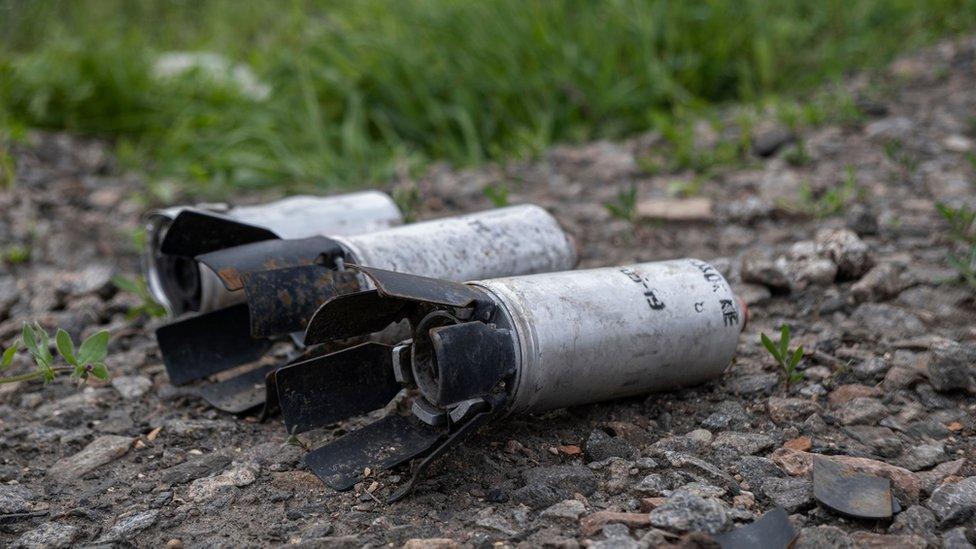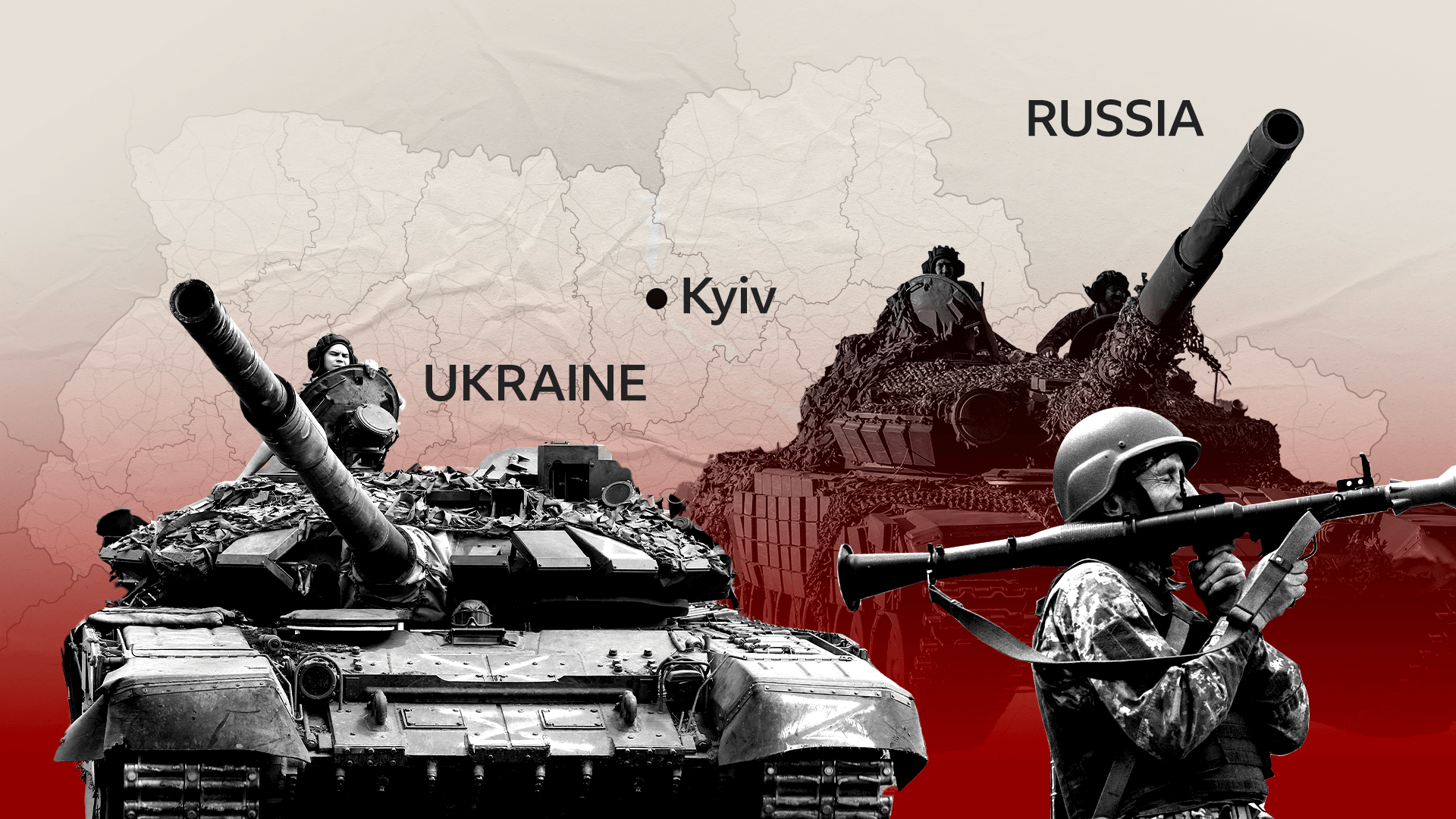Ukraine war: No fast results in offensive, warns Ukraine's General Syrskyi
- Published
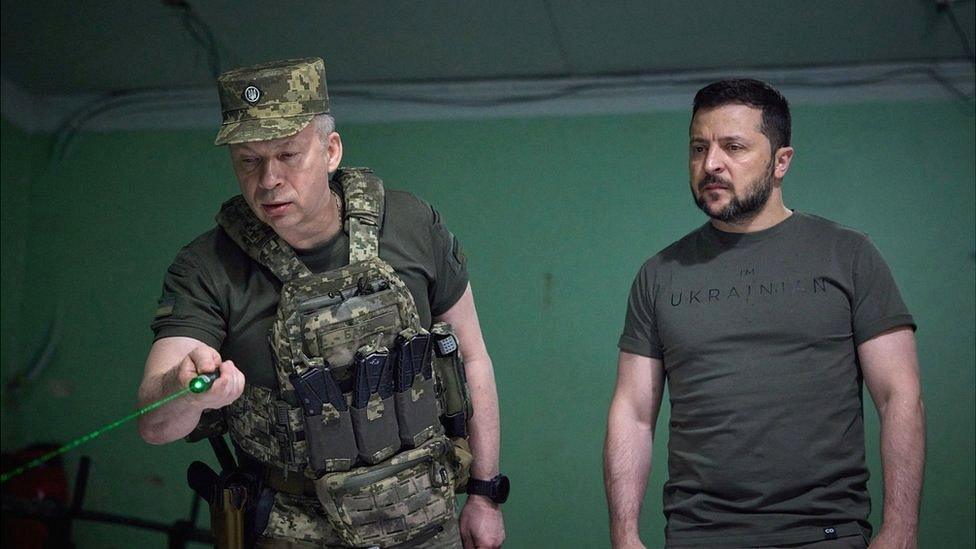
Gen Syrskyi (L), seen here with President Volodymyr Zelensky, is leading Ukraine's renewed offensive in the east
"We'd like to get very fast results, but in reality it's practically impossible," says the man overseeing Ukraine's renewed offensive in the east.
We meet Gen Oleksandr Syrskyi at a secret location beside the command vehicle he uses to visit his troops and keep an eye on the battle. On top is a powerful machine gun. Inside, a large screen displays multiple live video feeds of the battlefield from hundreds of drones.
Look up Gen Syrskyi online and you will see him described as "the most successful general of the 21st Century so far".
It's a lot to live up to.
He led the defence of Kyiv at the start of Russia's full-scale invasion of Ukraine last year. He was the mastermind behind Ukraine's surprise and successful counter-attack in Kharkiv last summer. Now, he's head of military operations in eastern Ukraine - one of the two main axes in Ukraine's counter-offensive.
We watch a feed of the heavily shell-scarred fields around Bakhmut, where some of his troops are trying to take back ground. I ask him if it's his goal to recapture the city? He smiles and says: "Yes, of course. I try to do it."
But even he admits that, more than a month since it started, Ukraine's long-awaited offensive on multiple fronts is going slower than many had hoped.
He says in the east, just like the south, the area is saturated with mines and defensive barriers. The Russians, he says, have many strongholds: "Therefore, our advances are really not going as fast as we would like."
We'd like to get very fast results. But in reality it's practically impossible

But Gen Syrskyi believes Ukraine still has one distinct advantage.
"I believe the unity of our military leadership and our soldiers' trust in each other is a strong point of our army."
That's in stark contrast to Russia's military hierarchy, which appears to be suffering from infighting, with senior officers being removed from command.
Gen Syrskyi is lionised by those around him, who admire his commitment, determination and cunning. Relaxation is a daily session in the gym. He sleeps for just four-and-a-half hours a night.
To the south and north of Bakhmut, Ukraine says it has retaken nearly 30 sq km (about 12 sq miles) of territory from the Russians.
For him recapturing Bakhmut is also "a matter of honour": "We lost many of our brothers, our servicemen, when we were defending Bakhmut… therefore we simply have to return it."
Ukraine's deputy defence minister, Hanna Maliar, told us that Russian forces in the city would soon be trapped. But artillery shells were still raining down on one Ukrainian position we visited just 3km from the city.
Alex, one of the soldiers from Ukraine's 57th Brigade, describes the situation as "tense".
He points to a large crater created by a Russian artillery shell from earlier that morning. It landed just a few metres from his trench.
Shortly after, we too had to run for cover.
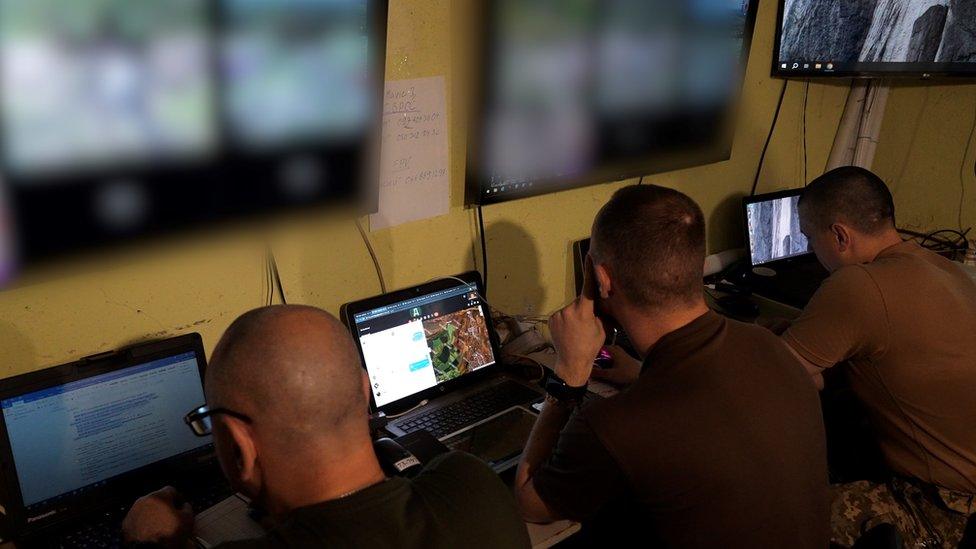
Far away from the shelling, commanders in a deep bunker are co-ordinating the efforts to recapture Bakhmut.
Two months ago, when I was last here, Ukraine was losing ground and in danger of being encircled. Now, the tables have turned.
Col Oleksandr Bakulin, commander of the 57th Brigade, tells me it's now the Russians who are in trouble.
He says he doesn't underestimate his enemy, but that the regular Russian troops he now faces are not like Yevgeny Prigozhin's Wagner mercenaries who eventually captured the city earlier this year.
Wagner, he says, "were uncomfortable enemies… they were killing for the sake of killing".
"If we put in a bit of effort, Bakhmut could be encircled," Col Bakulin says. Contrary to conventional military wisdom, he also says his casualties in the offensive are fewer than when his unit was static, defending the city.
Moving forward, albeit slowly, he says has also boosted morale so "the losses are easier to bear".
For the first time on the eastern front, the numbers of Ukrainian forces now match those of Russian troops - about 160,000. However, Ukraine is still outgunned by Russian artillery.
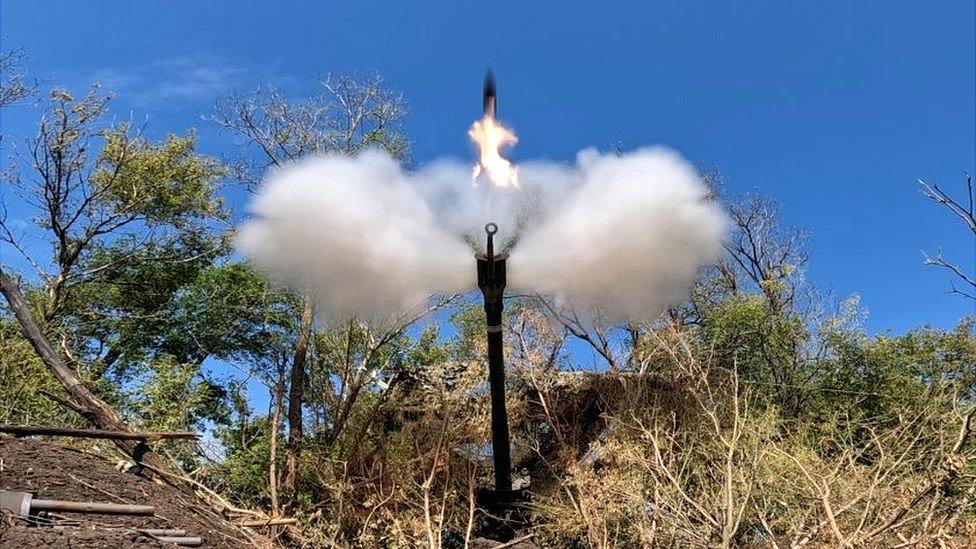
M777 howitzers, supplied by the US, are already in position around Bakhmut
Could the dynamics change with the arrival of US-supplied cluster munitions, which contain dozens of small bombs that can be sprayed out over a wider area? More than a hundred countries have banned them.
Col Bakulin says they're needed to "inflict maximum damage on enemy infantry". "The more infantry who die here, the more their relatives back in Russia will ask their government 'why?'"
But, he adds: "I can't say that cluster bombs will solve all our problems on the battlefield."
He also acknowledges they're a controversial weapon: "If the Russians didn't use them, perhaps conscience would not allow us to do it too."
Gen Syrskyi confirmed that US cluster munitions had now arrived in Ukraine and would be ready to use within days. We saw the US-supplied M777 howitzers, which will fire the shells, already in position around Bakhmut.
The general says the city's recapture would have more than just symbolic value. He argues Bakhmut is also of strategic importance - as the gateway to other key cities in the region.
But, he says: "Our people wait for victories. They need small victories."
Related topics
- Published17 February
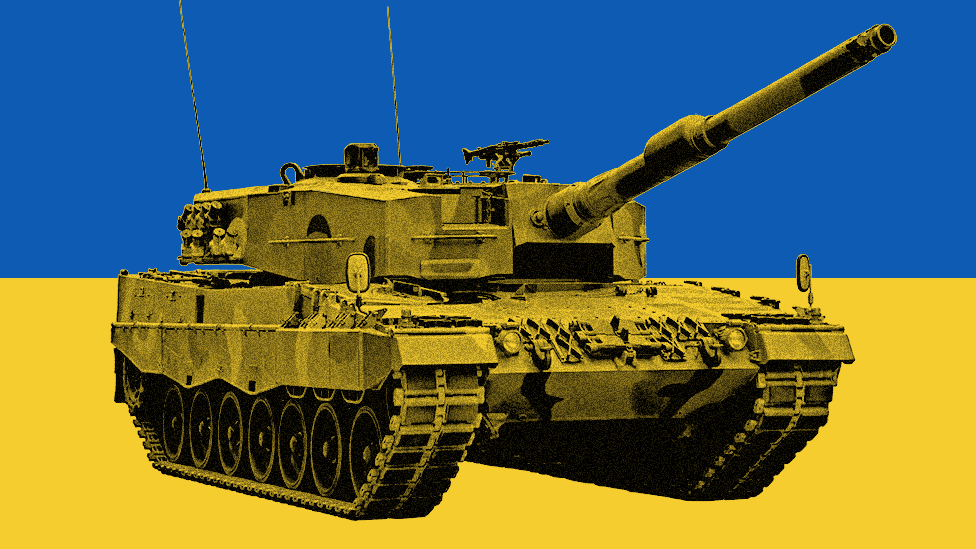
- Published10 July 2023
